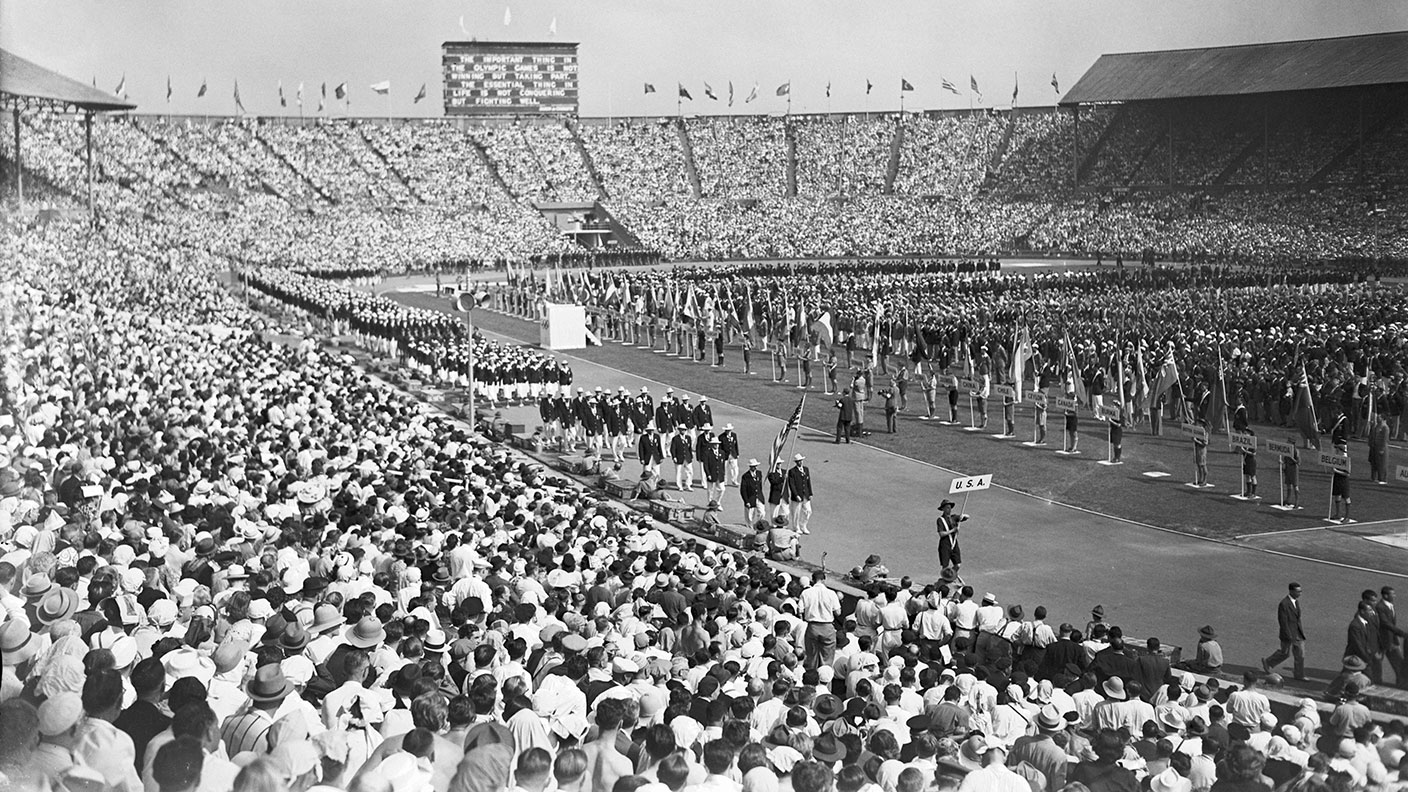
Get the latest financial news, insights and expert analysis from our award-winning MoneyWeek team, to help you understand what really matters when it comes to your finances.
You are now subscribed
Your newsletter sign-up was successful
Want to add more newsletters?

Twice daily
MoneyWeek
Get the latest financial news, insights and expert analysis from our award-winning MoneyWeek team, to help you understand what really matters when it comes to your finances.

Four times a week
Look After My Bills
Sign up to our free money-saving newsletter, filled with the latest news and expert advice to help you find the best tips and deals for managing your bills. Start saving today!
On this day in 1948, the Games of the XIV Olympiad began in London. 85,000 spectators crammed into Wembley Stadium on a swelteringly hot day to watch King George VI and Queen Elizabeth open the games.
They were dubbed the Austerity Games, as no stadiums or facilities were built specifically for them. The greyhound track at Wembley was converted into an athletics track, and a temporary boxing ring was built overnight on top of the Olympic swimming pool.
Male athletes were housed in RAF camps, while women were put up in university dormitories. Contestants had to bring their own towels and their own food. France brought their own wine.
MoneyWeek
Subscribe to MoneyWeek today and get your first six magazine issues absolutely FREE

Sign up to Money Morning
Don't miss the latest investment and personal finances news, market analysis, plus money-saving tips with our free twice-daily newsletter
Don't miss the latest investment and personal finances news, market analysis, plus money-saving tips with our free twice-daily newsletter
Just 59 nations took part, with 4,104 athletes (3,714 men, 390 women) competing in 136 events in 17 sports. There were no teams from Japan or Germany (who were not invited) or the USSR (who were invited, but who didn't want to come).
The head of the Czechoslovakian gymnastics team, Marie Provaznikova, started a noble tradition of Cold War defections in the 1948 games. She refused to return to her homeland after the games, citing a "lack of freedom". She stayed in Britain for a few months, then moved to the United States, where she lived for the rest of her life.
The most successful competitor was 30-year-old sprinter Fanny Blankers-Koen of the Netherlands, nicknamed, rather patronisingly, the Flying Housewife'. Blankers-Koen won four gold medals in the 100 metres, 200 metres, 80-metre hurdles and 4x100 metre relay.
The USA topped the medals table, winning 84 medals in total, including 38 golds. Second was Sweden, with France third. Great Britain came in 12th, with 23 medals, and three golds.
Financially, the games were a success. The budget was £743,000, while final expenditure was £732,268. Receipts totalled £761,688, which included £1,000 for the TV rights, which were sold to the BBC. The taxman's cut was £9,000.
By contrast, the 2012 games cost £8.8bn. The original estimate was £2.4bn.
Get the latest financial news, insights and expert analysis from our award-winning MoneyWeek team, to help you understand what really matters when it comes to your finances.

-
 Should you buy an active ETF?
Should you buy an active ETF?ETFs are often mischaracterised as passive products, but they can be a convenient way to add active management to your portfolio
-
 Power up your pension before 5 April – easy ways to save before the tax year end
Power up your pension before 5 April – easy ways to save before the tax year endWith the end of the tax year looming, pension savers currently have a window to review and maximise what’s going into their retirement funds – we look at how
-
 31 August 1957: the Federation of Malaya declares independence from the UK
31 August 1957: the Federation of Malaya declares independence from the UKFeatures On this day in 1957, after ten years of preparation, the Federation of Malaya became an independent nation.
-
 13 April 1960: the first satellite navigation system is launched
13 April 1960: the first satellite navigation system is launchedFeatures On this day in 1960, Nasa sent the Transit 1B satellite into orbit to provide positioning for the US Navy’s fleet of Polaris ballistic missile submarines.
-
 9 April 1838: National Gallery opens in Trafalgar Square
9 April 1838: National Gallery opens in Trafalgar SquareFeatures On this day in 1838, William Wilkins’ new National Gallery building in Trafalgar Square opened to the public.
-
3 March 1962: British Antarctic Territory is created
Features On this day in 1962, Britain formed the British Antarctic Territory administered from the Falkland Islands.
-
10 March 2000: the dotcom bubble peaks
Features Tech mania fanned by the dawning of the internet age inflated the dotcom bubble to maximum extent, on this day in 2000.
-
9 March 1776: Adam Smith publishes 'The Wealth of Nations'
Features On this day in 1776, Adam Smith, the “father of modern economics”, published his hugely influential book The Wealth of Nations.
-
 8 March 1817: the New York Stock Exchange is formed
8 March 1817: the New York Stock Exchange is formedFeatures On this day in 1817, a group of brokers moved out of a New York coffee house to form what would become the biggest stock exchange in the world.
-
7 March 1969: Queen Elizabeth II officially opens the Victoria Line
Features On this day in 1969, Queen Elizabeth II took only her second trip on the tube to officially open the underground’s newest line – the Victoria Line.
